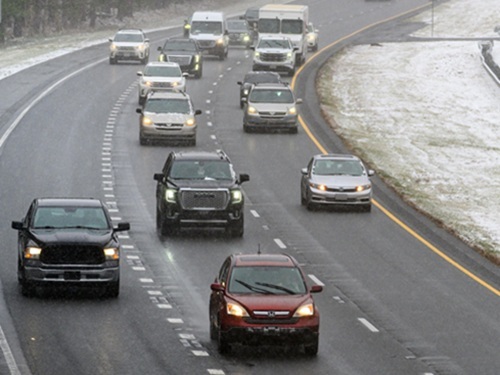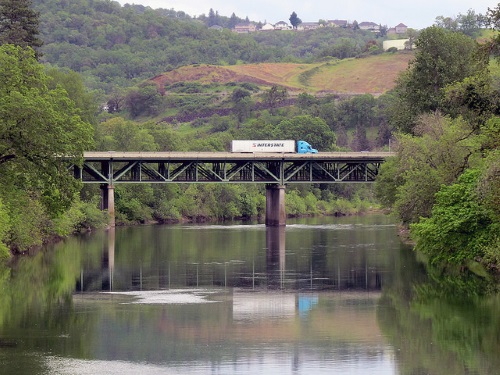The Federal Highway Administration awarded $15.1 million in Surface Transportation System Funding Alternatives or STSFA grants to seven projects in five states to support efforts to develop new ways to fund highway and bridge projects.
[Above photo by the Oregon DOT.]
STSFA grants will fund projects that test the design, implementation, and acceptance of user-based alternative revenue tools – such as a mileage-based user fee or MBUF – to help supplement the federal motor fuel taxes and provide long-term support for the Highway Trust Fund.

“These seven pilot projects will help provide valuable insight into potential new sources of revenue to support highway and bridge improvements nationwide,” explained Nicole Nason, FHWA administrator, in a statement.
Several state department of transportation projects are receiving funds via this round of STSFA grants:
- The Delaware Department of Transportation is getting $3.35 million to establish MBUF pilot projects as part of the multi-state I-95 Corridor Coalition
- The Oregon Department of Transportation is receiving funding for two projects: $5 million to study road usage charging in a connected vehicle ecosystem and $250,000 to study the use of blockchain as part of the Western Road User Charge Consortium.
- The Utah Department of Transportation is getting grants to support two projects as well: $395,000 to fund the integration of road user charges and express lanes tolling plus $350,000 to study a road usage charge local overlay setup.
- The Washington State Department of Transportation and the Washington State Transportation Commission will put a more than $5.5 million grant to work to support an ongoing road usage charge demonstration project.
- The Wyoming Department of Transportation is getting $250,000 to support a truck mileage user fee pilot project.
Since its creation in 2016 under the Fixing America’s Surface Transportation or FAST Act, FHWA said the STSFA program has funded 10 projects totaling $40 million – including $10.2 million issued to seven states in February 2019.
 Nation
Nation
Registration Open for AASHTO’s Winter Rail Meeting
December 19, 2025 Nation
Nation

